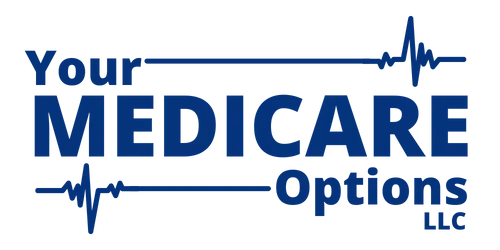




Taxes in Retirement: What Every Educator Needs to Know Before It’s Too Late
🎯 Introduction: The Hidden Cost of a "Well-Deserved" Retirement
You’ve spent decades teaching, mentoring, grading papers, and shaping young minds. Now you're counting down to that sweet moment—retirement. But hold on a sec. What if I told you there’s a sneaky surprise waiting to take a chunk of your hard-earned savings?
Yep, I’m talking about taxes in retirement. 😬
Let’s be real: Most educators I talk to assume that once they stop working, their taxes go down. Makes sense, right? Less income, fewer taxes? Not always. In fact, many retired teachers are shocked to find out they’re paying more in taxes than they ever expected!
In this article, I’m going to break it all down for you—in plain English, no complicated jargon, no scary math. Just the real stuff you need to know to keep more of what you’ve saved. Stick around, because this could make a major difference in your retirement income (and peace of mind!).
🧐 Why Should Educators Care About Retirement Taxes?
Let me ask you something: Do you know how much of your pension will be taxed? How about your 403(b) or 457 plan? Or Social Security—will that be taxed too?
If those questions made your stomach do a little flip, don’t worry—you’re not alone. Here’s why this matters:
Educators often have multiple income streams in retirement.
Many of those income sources are fully taxable.
Without a clear tax strategy, your net retirement income could be a lot less than you planned.
And let’s not forget Required Minimum Distributions (RMDs). Once you hit a certain age (currently 73), you’re required to start withdrawing from your retirement accounts—whether you need the money or not—and that could push you into a higher tax bracket. Ouch!
📚 Retirement Income 101: What’s Taxable and What’s Not?
Let’s take a look at where your income might be coming from in retirement and how Uncle Sam sees it:
1. Your Pension
Most educator pensions are considered ordinary taxable income. There’s no tax break here, even though you worked for it your whole life.
2. 403(b), 401(k), and Traditional IRA
These accounts are tax-deferred, not tax-free. That means you didn’t pay taxes on the money when you contributed, but you will when you withdraw.
3. Roth IRA or Roth 403(b)
Now here’s the good stuff. Withdrawals from Roth accounts are tax-free (if you follow the rules). This is one reason I’m a huge fan of Roths for educators.
4. Social Security
Surprise! Social Security benefits can be taxable, depending on your total income. For many retirees, up to 85% of their benefits could be taxed. Not exactly what you signed up for, right?
5. Other Income
Maybe you’re picking up some tutoring gigs or selling handmade crafts online—guess what? That’s taxable too.
💡 How Taxes Sneak Up on Educators
Here’s a little story.
A retired teacher—we’ll call her Sarah—was thrilled to start her retirement. She had a pension, a 403(b), and a bit of Social Security. She thought she was all set… until tax season rolled around. 😳
Because everything she pulled from her 403(b) and pension was taxed as income, and because her RMDs started pushing her into a higher tax bracket, Sarah ended up owing more taxes than when she was working full-time!
She felt blindsided. And she’s not the only one.
🧩 The Solution: Tax-Efficient Retirement Planning
Here’s the good news: You don’t have to be caught off guard like Sarah. You can prepare—and it’s easier than you think. Here are some smart strategies to consider:
✅ 1. Diversify Your Income Sources
Don’t put all your eggs in tax-deferred baskets. A mix of tax-deferred, tax-free, and taxable accounts gives you flexibility later on.
✅ 2. Roth Conversions
If you’re still working—or even if you’re retired but not yet taking RMDs—consider converting part of your 403(b) or traditional IRA into a Roth. Yes, you’ll pay taxes now, but future withdrawals will be tax-free.
✅ 3. Time Your Social Security Wisely
Waiting to take Social Security can not only increase your benefit, but it may also lower your overall tax liability depending on your income sources.
✅ 4. Plan for RMDs Ahead of Time
Start drawing down your tax-deferred accounts early—before you’re required to. This can help spread the tax hit over more years and keep you in a lower bracket.
✅ 5. Consider Where You Retire
Some states tax retirement income, others don’t. If you’re moving anyway, it might be worth checking out how different states treat pensions and Social Security.
🔍 FAQs: Educator Edition
Q: Will my pension be taxed by the federal government?
A: Yes. Your pension is considered ordinary income and taxed at your federal income tax rate.
Q: Can I avoid taxes altogether with a Roth?
A: Not entirely, but Roth accounts do offer tax-free withdrawals, which can significantly reduce your taxable income in retirement.
Q: What if I don’t have a Roth account yet? Is it too late?
A: Not at all! You can still explore Roth conversions or contribute to a Roth IRA if your income allows.
Q: Should I consult a financial advisor?
A: Absolutely. A pro who understands educators' retirement systems can help you create a personalized tax strategy.
🧠 Final Thoughts: It’s Not Just About Saving—It’s About Keeping
So here’s the truth, plain and simple:
It’s not enough to just save for retirement. You’ve got to have a plan to keep more of what you saved. Taxes can take a big bite out of your retirement income, but with a little proactive planning, you can bite back. 🧃💪
You’ve spent your career pouring into others—don’t let poor tax planning pour your money down the drain.
📌 Key Takeaways
Most educators will face taxes on pensions, 403(b)s, and possibly even Social Security.
Roth accounts offer powerful tax-free income in retirement.
Planning early for RMDs and diversifying income can save you thousands.
The state you retire in could impact your tax bill.
A smart tax plan = a smoother, less stressful retirement.
💬 Your Turn!
Here’s my challenge for you this week:
✅ Pick one of the strategies above—maybe starting a Roth, checking your future tax bracket, or researching your state’s tax laws—and take one small step toward implementing it.
Then come back and comment: What did you choose and what did you learn?
Let’s help each other out. Because retirement should feel like freedom—not a surprise tax bill. 💼✨
If you found this helpful, don’t forget to share it with another teacher who deserves to retire smart.
And hey, if you want more tips like this, be sure to check out our full episode on this very topic—Taxes in Retirement: An Educator’s Guide—only 15 minutes, packed with clarity and confidence. Watch it [here]. 👀
CONTACT
Evergreen Retirement Services
7537 Mentor Avenue Suite 208
Mentor, Ohio 44060
440-306-8349
info@evergreenrs.net
OUR COMPANY
OUR SERVICES
Turning 65 & Medicare
Medicare Supplement
Medicare Advantage
Prescriptions
Dental - Vision - Hearing
© 2023 copywriten yourmedicareoptions.net All written content on this site is for information purposes only. Opinions expressed herein are solely those of Evergreen Retirement Services and our editorial staff. Material presented is believed to be from reliable sources; however, we make no representations as to its accuracy or completeness. All information and ideas should be discussed in detail with your individual financial professional prior to implementation. Insurance products and services are offered through Evergreen Retirement Services. Evergreen Retirement Services and Debora & Dave Majher are not affiliated with or endorsed by the Social Security Administration or any other government agency. This content is for informational purposes only and should not beused to makeany financial decisions. Exclusive rights to this material belong to Evergreen Retirement Services. Unauthorized use of the material is prohibited. “We do not offer every plan available in your area. Any information we provide is limited to those plans we do offer in your area. Please contact Medicare.gov or 1-800-MEDICARE to get information on all of your options.”

